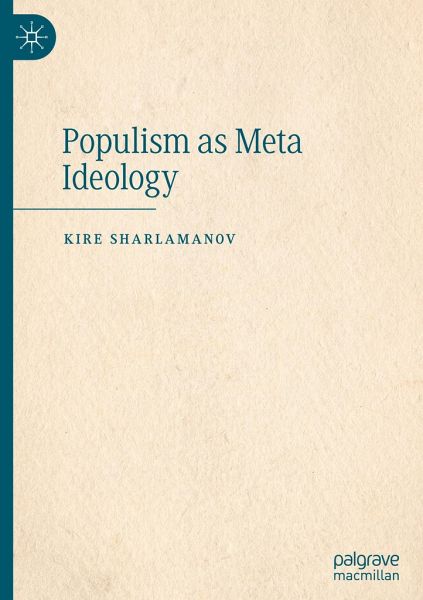
Populism as Meta Ideology
Versandkostenfrei!
Versandfertig in 6-10 Tagen
91,99 €
inkl. MwSt.
Weitere Ausgaben:

PAYBACK Punkte
46 °P sammeln!
This book explores the most important aspects of populism as a significant social phenomenon. It recapitulates the approaches to defining populism in the social sciences, singles out the most important concepts in the definition of populism, and presents them to the readership. Specific to this book is that it seeks to promote an approach that sees populism as a meta-ideology, that is, an ideology that uses other political ideologies instrumentally. In addition, the book Populism as Meta Ideology identifies the most important factors that have contributed to the growth of populism in recent ti...
This book explores the most important aspects of populism as a significant social phenomenon. It recapitulates the approaches to defining populism in the social sciences, singles out the most important concepts in the definition of populism, and presents them to the readership. Specific to this book is that it seeks to promote an approach that sees populism as a meta-ideology, that is, an ideology that uses other political ideologies instrumentally. In addition, the book Populism as Meta Ideology identifies the most important factors that have contributed to the growth of populism in recent times. Modernization, globalization, the crisis of political parties, and the transformation of the public sphere have been identified as such factors. A chapter is devoted to each of these factors in the book. The book concludes by examining the interaction between populism and liberal democracy, both theoretically and practically.














